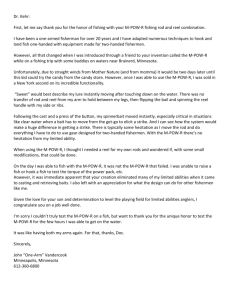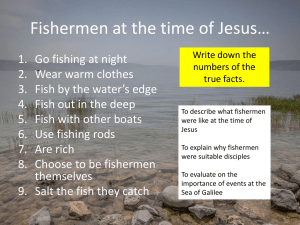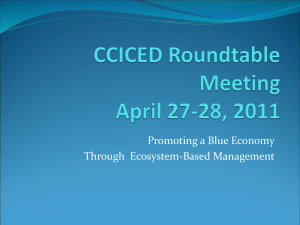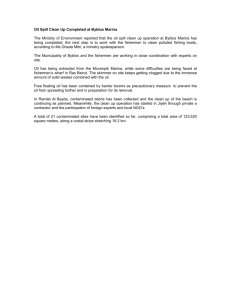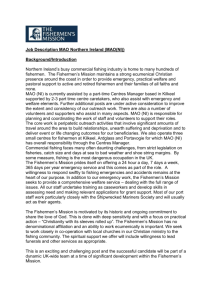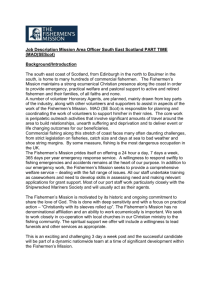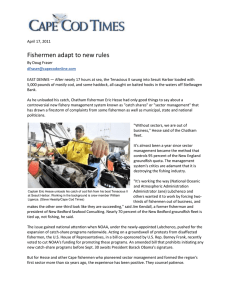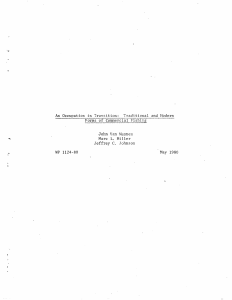Case Study – Tragedy of the Commons
advertisement
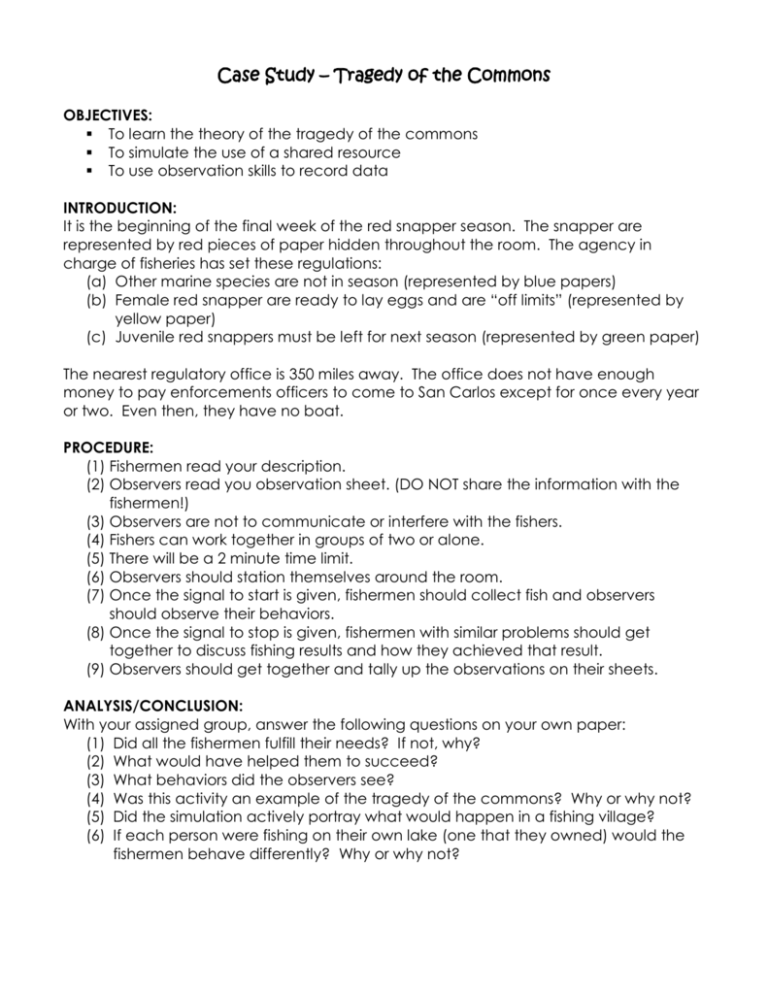
Case Study – Tragedy of the Commons OBJECTIVES: To learn the theory of the tragedy of the commons To simulate the use of a shared resource To use observation skills to record data INTRODUCTION: It is the beginning of the final week of the red snapper season. The snapper are represented by red pieces of paper hidden throughout the room. The agency in charge of fisheries has set these regulations: (a) Other marine species are not in season (represented by blue papers) (b) Female red snapper are ready to lay eggs and are “off limits” (represented by yellow paper) (c) Juvenile red snappers must be left for next season (represented by green paper) The nearest regulatory office is 350 miles away. The office does not have enough money to pay enforcements officers to come to San Carlos except for once every year or two. Even then, they have no boat. PROCEDURE: (1) Fishermen read your description. (2) Observers read you observation sheet. (DO NOT share the information with the fishermen!) (3) Observers are not to communicate or interfere with the fishers. (4) Fishers can work together in groups of two or alone. (5) There will be a 2 minute time limit. (6) Observers should station themselves around the room. (7) Once the signal to start is given, fishermen should collect fish and observers should observe their behaviors. (8) Once the signal to stop is given, fishermen with similar problems should get together to discuss fishing results and how they achieved that result. (9) Observers should get together and tally up the observations on their sheets. ANALYSIS/CONCLUSION: With your assigned group, answer the following questions on your own paper: (1) Did all the fishermen fulfill their needs? If not, why? (2) What would have helped them to succeed? (3) What behaviors did the observers see? (4) Was this activity an example of the tragedy of the commons? Why or why not? (5) Did the simulation actively portray what would happen in a fishing village? (6) If each person were fishing on their own lake (one that they owned) would the fishermen behave differently? Why or why not? You are a fisherman that recently moved to San Carlos, and you have no family here. You sometimes help out a friend who poaches turtles. You have never heard of anyone getting caught poaching, and it pays good money. You know that you are not supposed to catch other species outside of the season, but you figure that if you do not catch them, someone else will. This same friend lent you his boat to fish this season, and you pay him 50% of the money you make. You really want to buy your own boat so that you can fish and poach without having to share the profits. You are a high school student and have plans to go to the university next year. You are fishing with one of your father’s boats to add to the family income, but you do not want to be a fisherman. You are interested in getting your degree in fisheries management to see if maybe there is a way to keep fisheries from declining. Your father also owns a successful business in town, so there is a steady income. You are a fisher who moved to San Carlos with your family three years ago. You like it here, and you especially like the fishing, but your family wants to move to Mexico City, where you could earn more money driving a truck for your wife’s cousin. You like the idea of being your own boss and working outside. You have to catch at least 20 fish to convince your family that you can support them with fishing. You could also poach lobster (an out of season species) and earn just as much money by only catching five lobsters. You have been fishing in Magdalena Bay for seven years. You know that the fishing industry is not going to last much longer and you want to get out. You have plans to open up an auto repair shop, but you do not have enough money yet. If you caught 30 fish, you could get out of fishing. You know a seller who will buy all undersized fish (juveniles) and pay ½ the price of an adult for them (i.e., 20 juveniles = 10 adults) You are a fisher from San Carlos and have had a bad year so far. If you do not catch at least 30 fish today, you will need to sell one of your boats which will decrease your profit in the upcoming season. You believe in following the regulations, but are worried you will not be able to get enough adult male fish today. Observation Sheet Directions: Read through the entire lost of behaviors below. Tally the times that you see the following behaviors by the fishers. Remember, you must not communicate with the fishermen. How many fishermen start fishing before the time started? How many fishermen continue to fish after the time ends? How many fishermen work cooperatively with the other fishermen? How many fishermen argue with other fishermen? How many fishermen watch what others collect? How many fishermen look to see if they are being watched? How many fishermen collect green, yellow, or blue fish? How many fishermen tell another fisherman to stop collecting green, yellow, or blue? How many fishermen try to convince another fisherman to collect green, yellow, or blue? What else did you observe?
